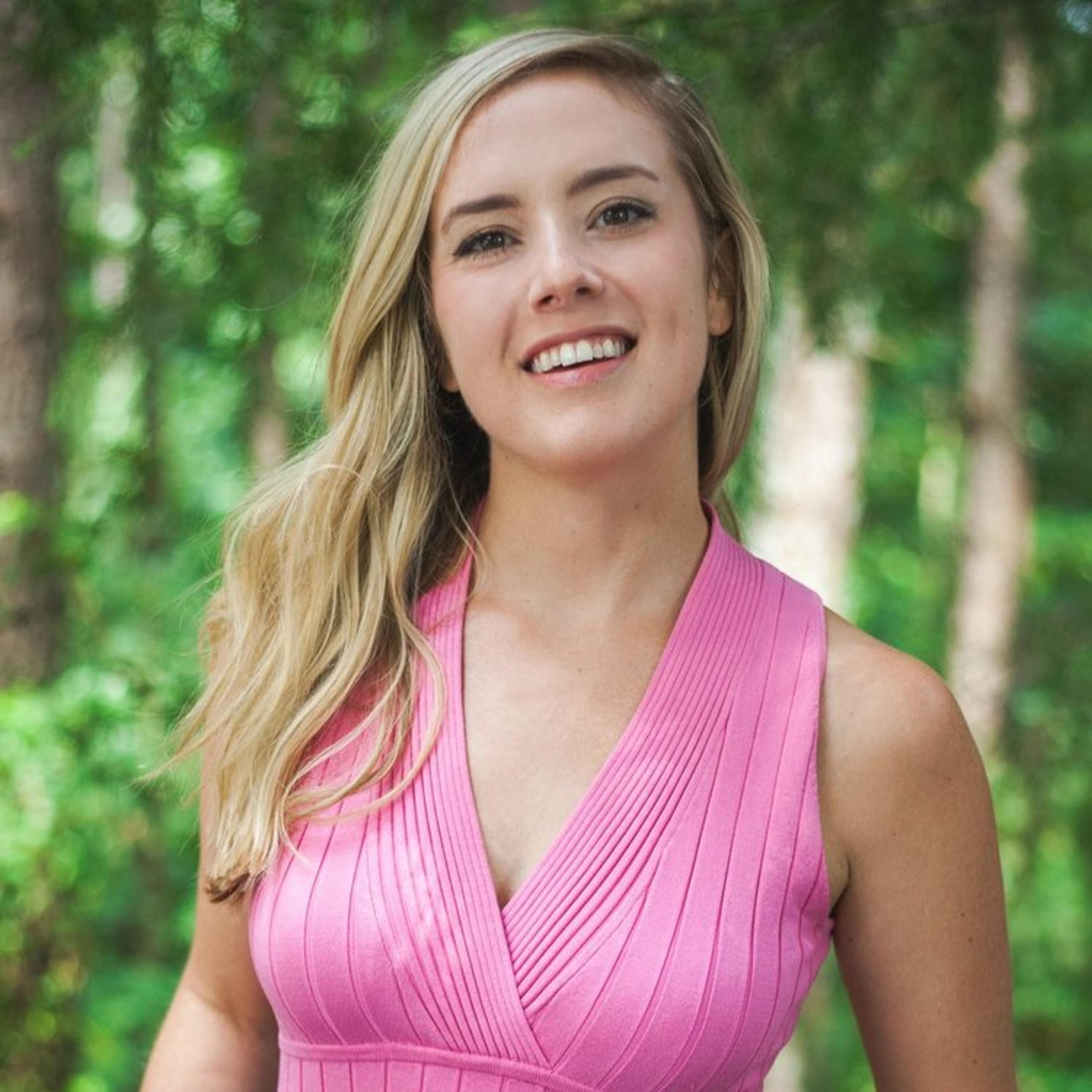

I’m a registered dietitian (RD), yet I’m called a “nutritionist” at least once a week. Although there are stark differences between dietitians and nutritionists, I get it—it’s confusing. There are seemingly endless titles for nutrition professionals, ranging from dietitians, nutrition specialists, nutritionists, health coaches, holistic nutritionists, and more. With so many titles, figuring out the most skilled provider to help you heal from an eating disorder or disordered eating can be difficult. I’m hoping to help you clearly understand the differences in training, education, roles and qualifications so you can make an informed decision about who is the right fit for you.
What’s the difference between a dietitians and nutritionists’ training?
Education and schooling are two of the largest differences between dietitians and nutritionists.
The two licenses to be aware of for dietitians and nutritionists, respectively, are registered dietitian (RD) and Certified Nutrition Specialist (CNS). In fact, RD and CNS credentials are the only titles for dietitians or nutritionists that require years of higher education, supervised practice, licensure exams, and continuing education. Here's what it takes to become a RD:
- Earn a bachelor’s or master’s degree from an accredited nutrition program, which includes wide-ranging coursework, including biochemistry, food science, and medical nutrition therapy. Starting in 2024, there will be a requirement for a master’s degree.
- Complete 1,000 hours of supervised training in multiple settings, including hospitals, clinics, community centers, schools, and private practices.
- Pass an exam and become licensed.
- Continue to learn through additional training to maintain credentials.
Here’s what it takes to become a CNS:
- Earn a master’s degree or doctoral degree in nutrition or a related healthcare field.
- Complete coursework from an accredited program with topics like biochemistry, anatomy and physiology, and life sciences.
- Finish 1,000 hours of supervised training from a qualified supervisor in a choice of settings, like private practices, institutions, and clinics.
- Pass the Certification Examination for Nutrition Specialists
On the other hand, uncredentialed nutritionists, which may have titles like “health coach” or “nutrition consultant,” are not subject to the same intensive training or education for the RD or CNS certifications. “There are other nutrition certification programs that aren’t regulated by any organizations in the United States,” registered dietitian Courtney Darsa explains. “If there’s someone who goes by one of these titles, it’s best to look into their education and credentialing with their state and if their title is regulated. This is because their advice may be harmful if it’s not evidence and research-based.”
What’s the difference between a dietitians’ and nutritionists’ qualifications?
Because the main difference in training for a RD vs a CNS is medical nutrition therapy, the same goes for what they’re qualified to do. “While both RDs and CNS can offer counseling and education, RDs hold a unique distinction,” explains Ana Pruteanu, MS, RD, LDN, CEDS-C. “They are qualified to provide medical nutrition therapy and a range of clinical interventions. The scope of practice for RDs is extensive, encompassing a wide array of nutritional interventions.” Specifically, RDs can help diagnose and treat illnesses, like eating disorders, using individualized nutrition treatment, including specific intravenous feedings, tube feedings, and meal plans.
CNS are qualified to provide services like nutrition education and programming and to work in nutrition research and health promotion campaigns. They’re also equipped to create educational materials about nutrition and healthy lifestyles.
Uncredentialed nutrition professionals (anyone other than a RD or CNS) likely don’t have adequate education, training, and qualifications to provide custom nutrition advice and guidance. Depending on the state they live in, it may even be illegal to do so without becoming a licensed RD or CNS.
Why is it important to see a dietitian in eating disorder recovery?
Fully understanding medical nutrition therapy is essential when treating eating disorders, which is why it’s important to specifically seek out a registered dietitian. Eating disorders have many medical complications, and so it’s important that nutrition professionals have a deep clinical understanding of treatment goals and how nutritional changes interact with other medical conditions.
Dietitians working with eating disorder patients often work with a team of other providers, including a doctor, therapist, and psychiatrist, which requires regular communication and collaboration. “This is something that registered dietitians get schooling on and often have experience with in the clinical and hospital setting where medical nutrition therapy is being practiced,” says Darsa.
Research shows dietitians’ skills and knowledge are necessary complements to psychological treatment of eating disorder clients. This is because without proper nutrition rehabilitation and care, psychological progress may not be sustained because of the effects of starvation on the brain. Plus, findings from a 2021 review of research suggest that not only can RDs aid with refeeding, weight restoration, meal planning, and nutrition education in treatment, but that they can also help patients work on their relationships to food, body, and exercise, and to develop a sense of safety within their bodies.
“In my personal situation in my daughter's recovery, her RD was pivotal to her recovery,” shares Equip family mentor Laura Cohen. “She was extremely helpful to stand alongside my daughter during her recovery and was a pillar of her treatment team.”
What should you look for when choosing a dietitian?
When you’re looking for a RD to help you heal from an eating disorder or disordered eating, here are two key factors to keep in mind:
- Not all RDs have eating disorder experience or specialization. “When seeking an RD for eating disorder treatment, it's essential to inquire about their specific experience in eating disorders,” Pruteanu suggests. “This includes their educational background, years of practical experience, and the variety of settings they've worked in.” If they don’t have a ton of experience, make sure they’re under the supervision of someone who does.
- Some RDs are steeped in diet culture and fatphobia. Unfortunately, there are RDs (and other eating disorder providers, research shows), who carry weight bias about people in larger bodies. Some RDs will say they treat eating disorders while also providing “weight management” or even weight loss services—consider that a red flag. “If an RD ever says to a client ‘do not worry, I will not let you gain too much weight,’ I would run fast away from that provider,” says Cohen. Instead, look for a RD who describes their approach as “weight-inclusive,” “weight-neutral,” or one that is rooted in Health at Every Size (HAES).
Pruteanu suggests asking four questions in your RD vetting process:
- How long have you been working with clients with eating disorders?
- What additional training have you received in eating disorders?
- What eating disorders diagnoses have you worked with?
- What is your approach to treating eating disorders?
“By working with RDs specializing in eating disorders,” Pruteanu adds, “individuals in recovery can benefit from the nuanced expertise and compassionate guidance necessary for a successful journey towards healing and well-being.”
At Equip, patients work with registered dietitians who have specialized training in treating eating disorders and using a HAES-informed approach. Dietitians play a key role in treatment. Some of their responsibilities include:
- Safely increasing calories through a nutrition prescription
- Helping patients and their families with recipes and meal planning
- Providing nutrition education and debunking diet culture myths
- Facilitating exposures to incorporate fear foods
- Managing physiological symptoms like stomach pain and acid reflux
These dietitians collaborate with the other members of a patient’s care team to craft a treatment plan with the highest chances of success.
If you or a loved one are looking to connect with an eating disorder care team, you can schedule a free consultation to learn more about our virtual, evidence-based program.
- McEntee, Mindy L., Samantha R. Philip, et al. “Dismantling Weight Stigma in Eating Disorder Treatment: Next Steps for the Field.” Frontiers in Psychiatry 14 (2023). https://doi.org/10.3389/fpsyt.2023.1157594.
- Yang, Yive, Janet Conti, et al “Beyond Refeeding: The Effect of Including a Dietitian in Eating Disorder Treatment. A Systematic Review.” Nutrients 13, no. 12 (2021): 4490. https://doi.org/10.3390/nu13124490.
- “Nutritionist vs. Dietitian: What’s the Difference?” NurseJournal, September 8, 2023. https://nursejournal.org/healthcare/nutritionist-vs-dietitian/.
- “Nutritionist vs Dietitian.” CORP-MPH1 (PHD), October 12, 2023. https://www.publichealthdegrees.org/careers/become-registered-dietitian/dietitian-vs-nutritionist/.
- “Certified Nutrition Specialist® TM Jobs, Salary and Certification Programs.” nutritioned.org, September 21, 2023. https://www.nutritioned.org/certified-nutrition-specialist/.
- “Become a Registered Dietitian Nutritionist.” Academy of Nutrition and Dietetics: eatright.org. Accessed November 27, 2023. https://www.eatright.org/become-an-rdn.







